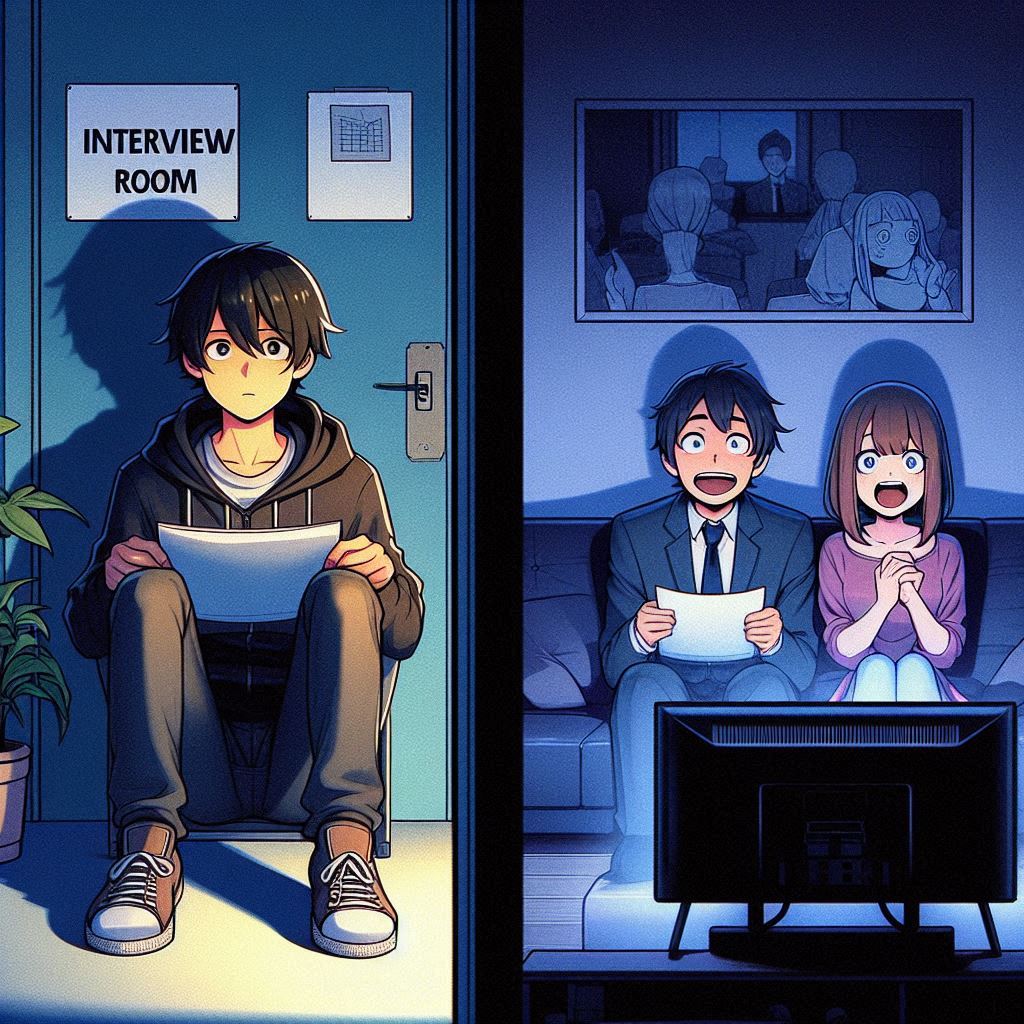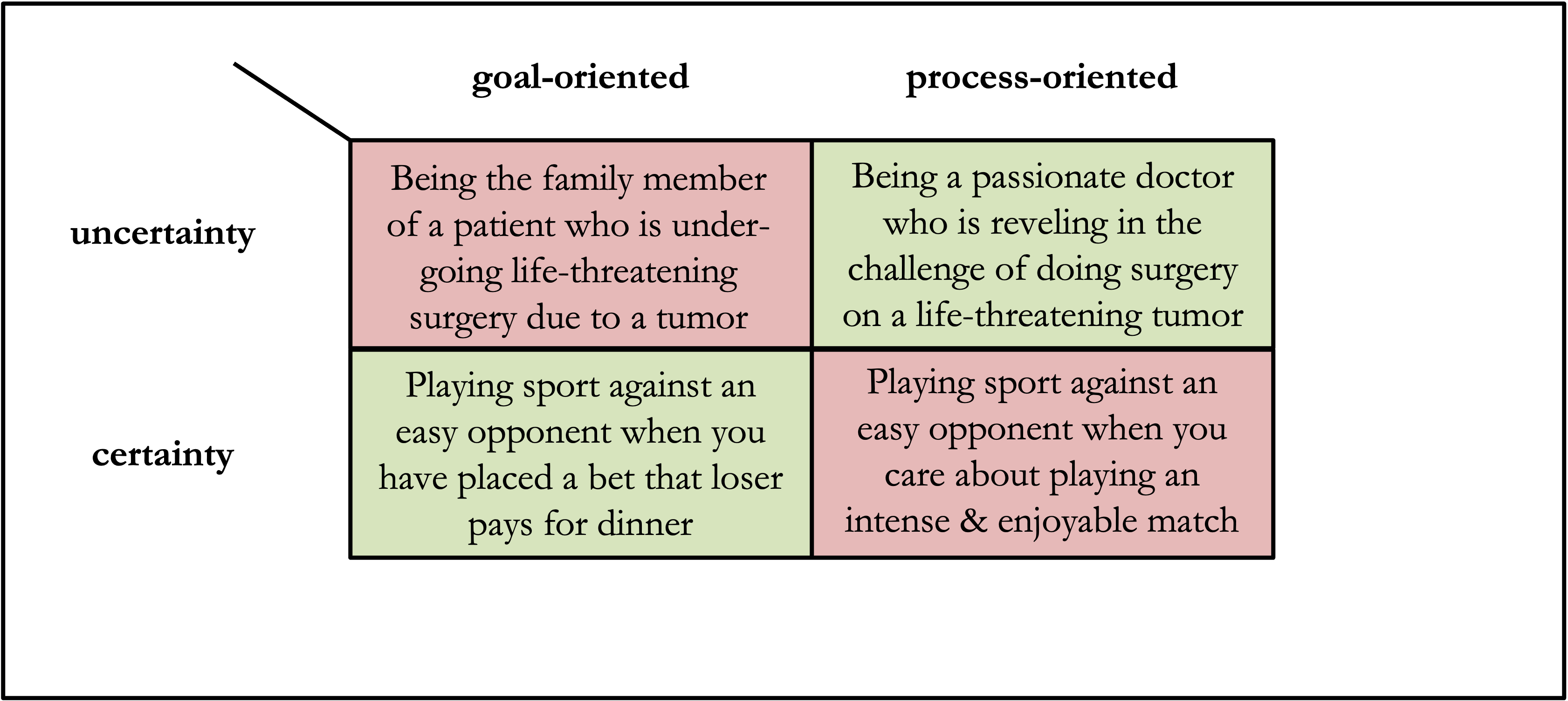Before I bias you with my chattering, I want you to first pause for a moment and ask yourself the above question. Don’t overthink. Just go with an honest answer from your gut and threshold it to a yes or no (maybes are not allowed)….. Now that you have your own answer, let’s dive right in.
For long I have held the stance that uncertainty in day-to-day activities is essential, and is in fact what makes life exciting. While I still largely believe in this, some recent events in life have made me question it. I decided to seriously ponder over my extreme opinion when a famous AI researcher teacher (best in the business) Andrej Karpathy said on a podcast that he feels unsettled by uncertainty.

So what makes uncertainty scary/stressful? Or if you are on the opposite end of the spectrum, what makes uncertainty exciting/happy? Is there a possibility that you could feel both emotions? If so, what does it depend on? Before we jump into these questions, let’s look at some examples for both scenarios: waiting outside an operating room (OR) when your loved one is in surgery, the build-up for suspense in a thriller movie, waiting to hear from your interviewer regarding your job application and watching a nail-biting last over in a cricket match. Some of these we like and some we don’t. But for quite a while I was unable to provide an answer independent of the context. My conclusion always ended up being “it depends”. It was like this for some time until one fine afternoon it clicked (yup, I believe all these blog-related thoughts are discoveries substantial to humanity :)). I realized that whether you value the outcome (goal-oriented) of the uncertain event or an action (process-oriented) involving the uncertain event determines whether you get worried or happy respectively.
Let’s take a simple example to understand this. Consider a patient undergoing a life-threatening surgery to remove a tumor. There is uncertainty in whether the patient will make it out alive. Let’s look at this situation from two perspectives - as the patient’s family member and as the doctor performing the surgery. In case of the former, you only care about seeing your loved one come out alive at the end of surgery i.e. the outcome of the uncertainty. The wait time during the surgery is excruciating. In case of the latter, as a surgeon passionate about their discipline, you find adrenaline in tackling such a challenging surgery and also joy in saving the life of such a patient i.e. you value an action involving an uncertain event. While doctors do care about a patient’s life (the outcome), they see enough deaths to appreciate the value in saving lives (action) more. In fact, when both these perspectives coalesce into one, i.e. when a doctor needs to treat their own family member, it is not recommended.

Is there any explanation for this hypothesis? I can do a quick, hand-wavy one. When doing a goal-oriented task, any randomness jeopardizes the certainty of achieving the desired outcome. The period of uncertainty feels unpleasant since the outcome (what you value) is known only at the end of the uncertain event. Moreover, these sources of randomness are typically out of your control (how good the surgeon is, how much the tumor has spread…), thus causing more stress. On the contrary, the randomness in a process-oriented task naturally lends itself to a state of happiness during the action. One is also unfazed by the outcome of the uncertain event. But now, are there any counterexamples to this hypothesis? One deceiving example is gifts. Gifts are goal-oriented uncertainties (because you are excited about what is inside) that make you happy. It is deceiving because while there is uncertainty in what the gift might be, there is certainty of it providing joy independent of what is inside. Other nuanced counterexamples include the thrill in gambling (goal-oriented uncertainty which can give joy), or the anticipation of working in your desired company when awaiting interview results (this one was suggested by ChatGPT), both of which have a combination of goal and process-oriented uncertainties, and are left as an exercise for the reader :)
I hope with this knowledge you can transform your life by ….. Nope, I am not a life coach. You can do whatever you want with this information. But let’s end with something sappy. If you look at the meta picture, all these goal/process/any-oriented uncertainty collectively add to the uncertainty in life, thus making the action of living life a wonderful experience. Now given a choice to live the rest of your life with or without uncertainty, what would you choose? Did your answer change from what you had at the start…?
This blog post is dedicated to Rajat (my close friend), Gagana (my sister) and Srinidhi (my brother-in-law) for being my rock during my PhD thus far.